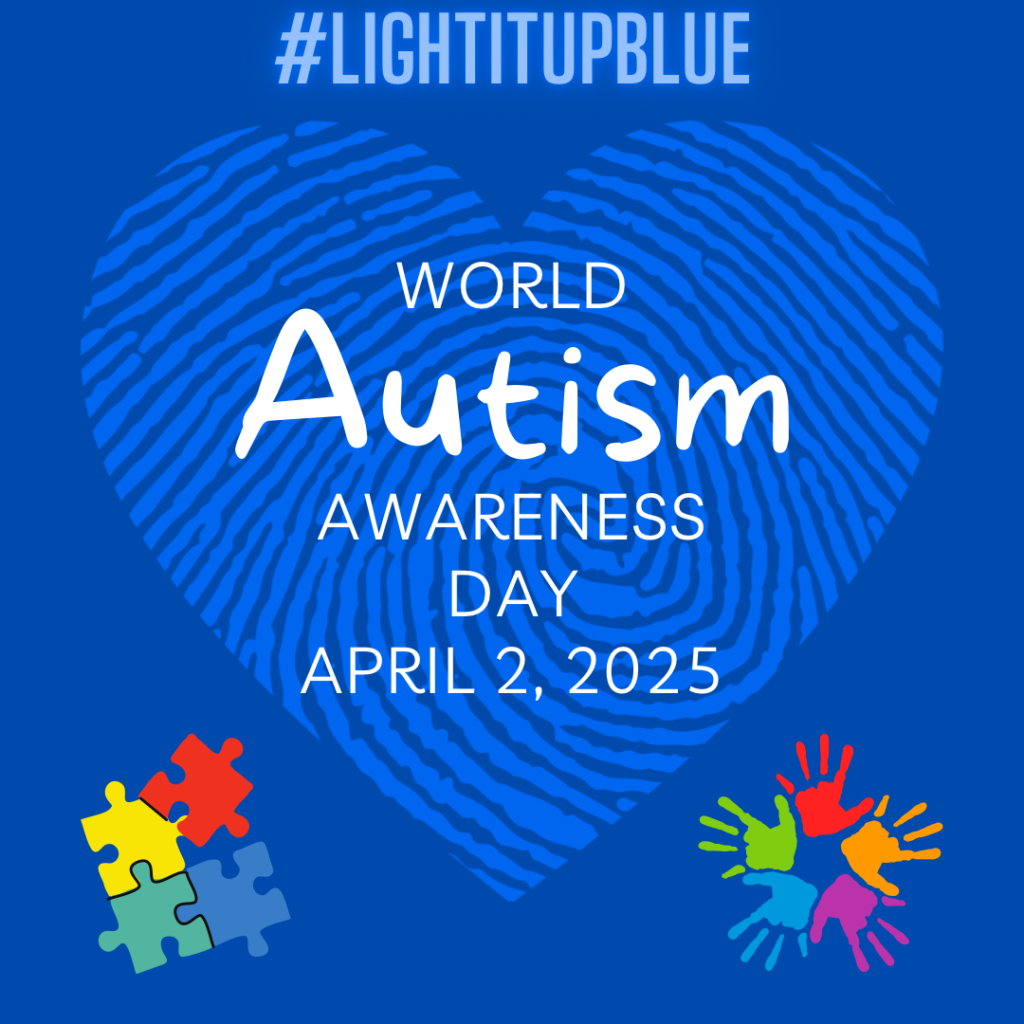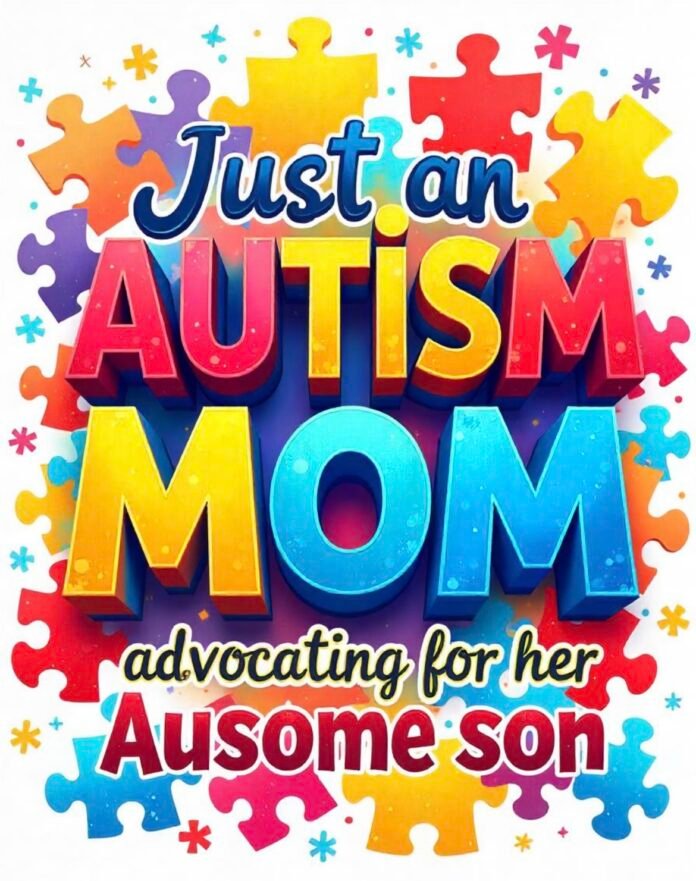By: Shanelle D. Frazier | April 1, 2025
Clarksdale, Mississippi – Welcome to my Autism Talk. I’m here to share information about a condition that affects over 13,000 children in the state of Mississippi alone. My son is one of them. I’m also here to educate my community on three areas surrounding autism, in hopes that we can all learn about this condition, try to understand it, and support those who live with it and are affected by it. Thank you in advance for listening and learning.
Let’s kick off this talk with some basic information about autism.
According to the National Autism Association, autism, or autism spectrum disorder (ASD), is a condition that impacts the normal development of the brain. Individuals with autism typically have difficulties with verbal and non-verbal communication, social interactions, and leisure or play activities.
It’s important to know that autism is a spectrum and is diagnosed by levels. No two people with autism are alike. They may have similarities, but each person still has their own unique identity. Like many other conditions, autism is recognized on a global scale. World Autism Awareness Day is observed on April 2 every year.
Autism awareness is about helping those we love, those who love us, and even those we have not yet met to understand autism. Now that we know the basics, let’s discuss some areas surrounding autism.
Area 1: Understanding Autism
Autism can be diagnosed as early as two years old and is a lifelong condition. Some struggles that autistic children face may continue into adulthood. You should know that people with autism may see the world differently and might struggle with things like socializing, communicating, or handling loud noises or bright lights. These struggles are not a choice. There are therapies and medications that may help, but there is no “one-size-fits-all” solution.
If you see a child or adult running from a parent or caregiver, don’t automatically assume that the person is being defiant—they could be eloping. Elopement is a common behavior among people with autism. It occurs when a person with autism leaves a safe space or caregiver without permission. This is a serious safety concern for individuals with ASD and their families. Studies have also shown that autistic individuals are often drawn to water, which adds another layer of concern during elopement episodes.
Also, if you see a child or adult crying and falling out in a store, doctor’s office, or any public place, please don’t assume they’re “bad.” It is unhelpful and harmful to say that they should be spanked or “popped” for acting out. People with ASD can become easily overwhelmed and overstimulated, and it may not take much to set them off. The best way to help is to try to calm them down and make them feel safe.
Area 2: Acceptance
Treating people with autism with kindness, patience, and respect—and recognizing their unique strengths and challenges—should be normalized. They already face enough daily challenges. When their world, including parents, family, friends, teachers, neighbors, and church members, doesn’t accept them, it causes even more hurt and confusion.
Let’s practice inclusion, not isolation.
If you need help understanding, try putting yourself in the shoes of an autistic person or a caregiver. I guarantee that your thoughts or imagination can’t compare to the realities of those affected by ASD. Trust me—I’m a living witness.
Acceptance means understanding that people with autism are different. They may not be your typical or average child or adult, and no matter how much you wish they were or want them to do certain things, they simply cannot. People with ASD are easily distracted, quickly overstimulated, and may have difficulty expressing and understanding emotions. Let’s practice acceptance.
Area 3: Support
We should work toward creating a world where people with autism feel included—at school, church, work, and in the community. Let’s teach our children to be aware of and compassionate toward their peers with autism. Teach them how to engage, play, and offer help when needed.
For autistic adults, support them in the workplace. If you see someone struggling at the grocery store or appearing confused in a social setting, offer your assistance.
Parents and caregivers of individuals with autism also need your love, support, help, blessings, and prayers. We carry a heavy emotional load—guilt, worry, questions, and constant planning. From scheduling therapy to figuring out the right school, we’re always on alert. Don’t let someone you know suffer in silence.
I’m an autism mom who will NEVER stop advocating for my son. We believed in and began early intervention. Although we’ve had the official ASD diagnosis for only a year, I knew since he was about 18 months old that he was not the average toddler. I brought my concerns to his pediatrician, and the rest is history.
Today, my son is a vibrant, energetic, lovable, and smart six-year-old. He has his challenges. He struggles. But his support system never gives up on him. We do therapy, attend school, and work hard to help him meet standards. We play with others, travel, go to birthday parties, and make sure he knows he is loved. He just thinks and interacts differently—and that’s okay. I never stop him from simply being a kid.
So, if you know or meet someone with autism, remember that a handshake, hug, or any other form of touch may not be the best greeting. A simple “hello” and a warm smile go a long way.
We live in an area with limited resources, and that lack of access affects families with special needs more than most people realize. Let’s come together as a community—first, by being aware. If you can share information or resources with a family affected by autism, please do.
Lastly, on April 2, will you “Light It Up Blue” for Autism Awareness? The goal is to ensure that everyone knows about autism so we can build a more understanding and accepting society. That help starts right here at home. Let’s show families affected by autism that Clarksdale cares, the Mississippi Delta cares, and the entire state of Mississippi cares.
– Shanelle D. Frazier, Local Autism Mom


*To report a spelling or grammar error or inaccurate information, please email us at info@clarksdaleadvocate.news.



